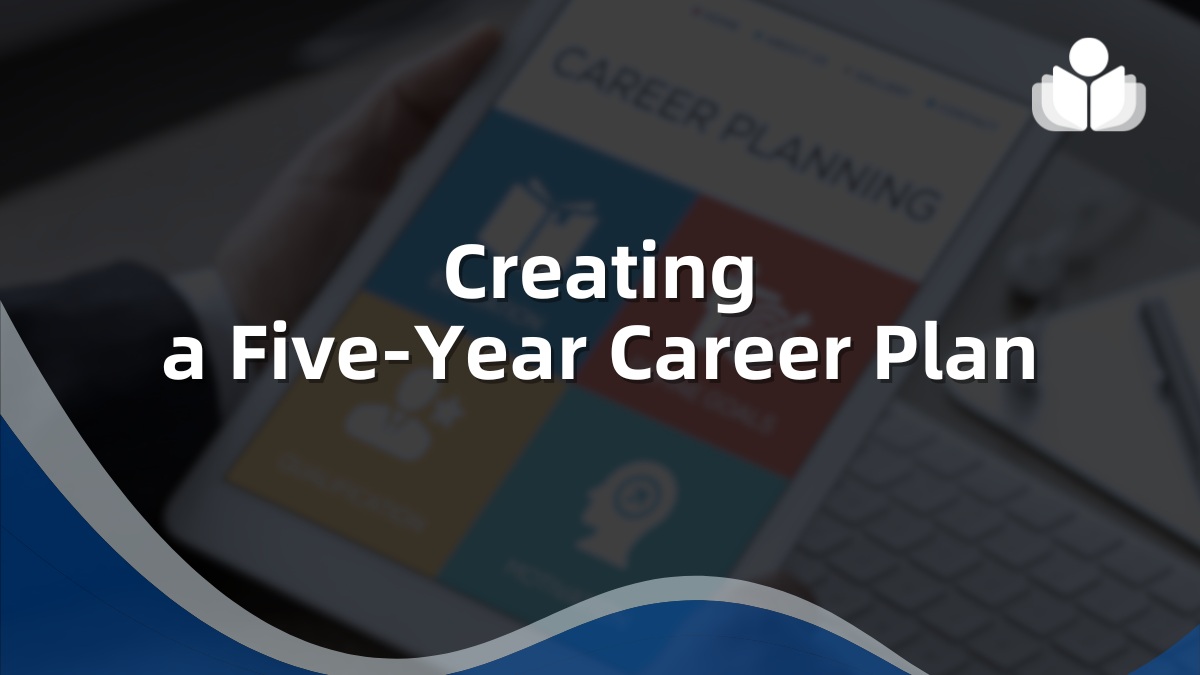Creating a career plan is essential for guiding your professional growth and staying focused on long-term goals. A five-year plan serves as a roadmap, helping you define your goals and the steps needed to achieve them.
By setting a structured plan, you gain clarity on your career direction, prioritize skill development, and increase your chances of achieving meaningful, long-term success. A clear plan helps you make informed decisions, seize relevant opportunities, and maintain motivation.
Self-Assessment
Before setting career goals, take time to understand yourself fully. Self-assessment helps clarify what you bring to the table and where you want to go.
Identify Your Strengths and Weaknesses
- Analyze your current skills, strengths, and experiences
- Pinpoint areas that need improvement for career growth
- Evaluate past experiences to identify core competencies
Define Your Passions and Interests
- Reflect on personal interests that spark motivation
- Align passions with career goals to find meaningful roles
- Recognize activities or roles that bring satisfaction
Understand Your Core Values
- Clarify your guiding principles and values
- Consider work environments that align with these values
- Choose career paths that honor your integrity and preferences
You can go through our complete article on choosing a career in 10 simple steps.
Set Clear & Specific Goals
Setting clear, actionable goals that provide direction and motivation is crucial to creating a successful five-year career plan.
- Define Long-Term Career Goals: Identify where you want to be in your career in five years. Examples might include reaching a managerial position, gaining expertise in a specific skill, or transitioning to a new career or industry. Setting a long-term vision gives you a target to work towards and helps guide your career decisions.
- Break Down into Short-Term Milestones: Establish yearly or even quarterly goals as stepping stones toward your long-term objective. These smaller milestones keep you on track and make the larger goal feel more attainable. Regularly achieving these mini-goals can also boost motivation and keep you engaged.
- Use the SMART Goal Framework: Ensure each goal is Specific (clear and well-defined), Measurable (track progress easily), Achievable (realistic within your current resources), Relevant (aligned with your career ambitions), and Time-bound (set deadlines to stay focused). This framework helps you create actionable goals that are easier to monitor and adjust over time.
Identify Skills and Education Needed
Assess the knowledge and abilities required to achieve your five-year career goals.
- Analyze Skill Gaps: Identify the skills you currently lack that are essential for your desired career path.
- Determine Skills or Certifications Needed for Your Target Role: Research industry standards to understand the qualifications and competencies expected.
- Plan for Education or Training: Map out the specific courses, certifications, or degrees that will bridge skill gaps.
- Outline Steps to Gain Qualifications, Certifications, or Degrees: Set a timeline and identify resources for achieving each credential needed.
- Look for Growth Opportunities in Your Current Role: Seek projects or responsibilities that will allow you to develop new skills on the job.
- Maximize On-the-Job Learning and Upskilling Opportunities: Expand expertise through training sessions, mentorship, and cross-departmental work.
Create an Actionable Plan
To turn your five-year career goals into reality, develop a structured, actionable plan that includes clear timelines, checkpoints, and adjustable flexibility.
- Develop a Timeline: Map out specific milestones for each year of the five-year plan to keep your progress visible.
- Break Down Goals into Manageable Steps: Divide larger goals into smaller, achievable steps to make the journey less overwhelming and trackable.
- Set Up Regular Checkpoints: Schedule quarterly or bi-annual reviews to assess your progress, reflect on achievements, and recalibrate if necessary.
- Track Daily and Weekly Progress: Keep a log of daily and weekly activities that contribute to your plan, creating a record of incremental steps forward.
- Stay Flexible and Open to Adjustments: As your career or personal circumstances evolve, remain open to changing goals, priorities, or timelines.
- Adjust Your Plan as Needed: Be ready to refine milestones, shift timelines, or adjust expectations based on feedback, new opportunities, or changes in direction.
- Prioritize Your Goals: Rank goals by importance, focusing your energy and resources on the actions that will have the greatest impact on your career.
Seek Mentorship and Networking Opportunities
Establishing a network of mentors and industry connections can be a game-changer in advancing your career and keeping you motivated. Regularly interacting with mentors and peers provides guidance, fresh perspectives, and accountability as you pursue your five-year plan.
Find a Mentor
Identify potential mentors within your company, industry, or professional circles who inspire you and possess the experience you admire. Approach them respectfully, explaining your career goals and how their insights could help. Be open to learning and receiving constructive feedback.
Expand Your Professional Network
Networking is crucial for discovering new opportunities, learning from others’ experiences, and staying updated on industry trends. Attend conferences, join professional groups, and engage in online industry forums. Building a network takes time, so nurture these relationships by maintaining regular, meaningful interactions.
Gain Feedback and Insights
Regular feedback from mentors and peers helps you identify areas for improvement, refine your goals, and align your progress with industry standards. Constructive insights allow you to stay adaptable, motivated, and focused on realistic steps toward your career objectives. Embrace both positive feedback and constructive criticism to evolve continuously.
Read our full article on 5 best career coaches.
Track Progress and Celebrate Milestones
To ensure steady progress toward your five-year career goals, tracking milestones, adjusting as needed, and celebrating each step forward is essential. Here’s how:
Measure Your Achievements Regularly
- Track accomplishments consistently
- Stay motivated by observing progress
- Compare results with your original goals
Adjust Goals as Necessary
- Reevaluate goals based on new experiences
- Adapt timelines as your career evolves
- Embrace flexibility as part of growth
Celebrate Small Wins
- Recognize each milestone you reach
- Reward yourself for consistent effort
- Reinforce positive momentum with each success
Focusing on regular assessment, adaptability, and self-recognition can help you stay aligned with your career vision and enjoy the journey.
Common Challenges and How to Overcome Them
Facing challenges is a natural part of following a career plan, but with the right strategies, you can stay on track and thrive.
1. Staying Motivated
- Set Mini-Goals: Break down your five-year plan into smaller, achievable goals to maintain a sense of progress.
- Visual Reminders: Keep visual cues like vision boards or written goals to remind yourself of your aspirations.
- Reward Yourself: Celebrate each milestone, no matter how small, to stay motivated and feel accomplished.
2. Dealing with Setbacks
- Expect the Unexpected: Acknowledge that setbacks are part of growth and plan for flexibility in your timeline.
- Focus on Solutions: When challenges arise, shift your focus to actionable solutions instead of dwelling on the problem.
- Seek Support: Talk to mentors or trusted colleagues for advice and encouragement during challenging times.
3. Balancing Work and Personal Growth
- Prioritize Tasks: Identify your most critical tasks to ensure you work efficiently and don’t overload yourself.
- Set Boundaries: Establish boundaries between work and personal time to maintain balance.
- Schedule Downtime: Make time for rest and personal activities to recharge and prevent burnout.
Conclusion
A five-year career plan is a roadmap guiding you toward meaningful career growth and achievement. By setting clear goals, identifying necessary skills, and tracking your progress, you gain control over your career trajectory and stay motivated.
Remember, career planning is a dynamic process that can adapt to changes along the way. Start today, commit to your personal and professional development, and take proactive steps toward the career you envision. With dedication and regular reassessment, your five-year plan can lead to long-term success and fulfillment.
 Sections of this topic
Sections of this topic
















